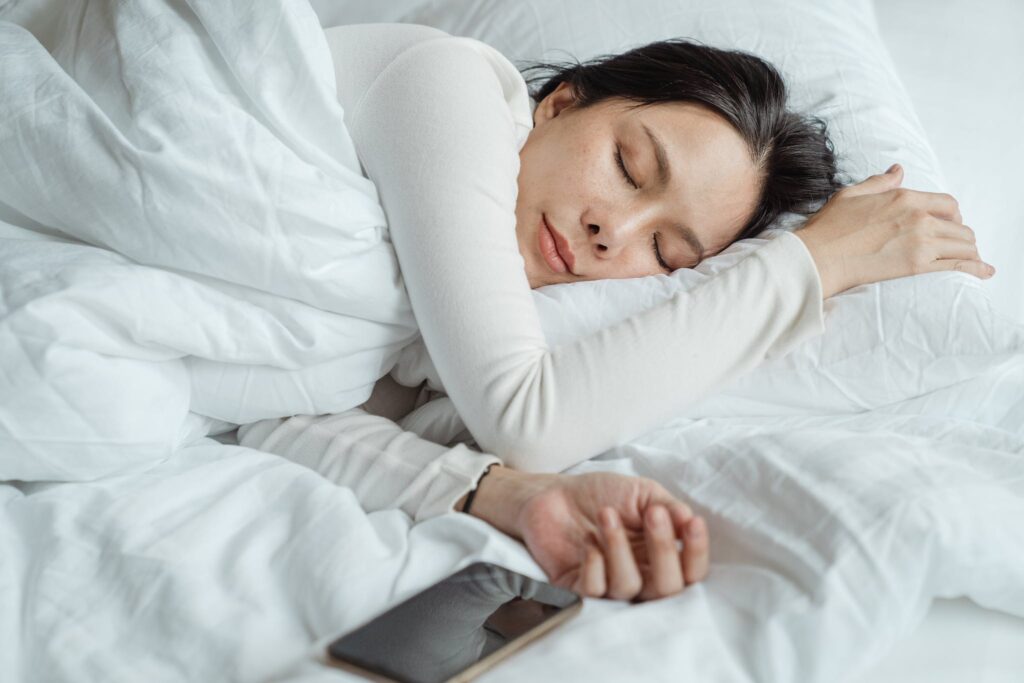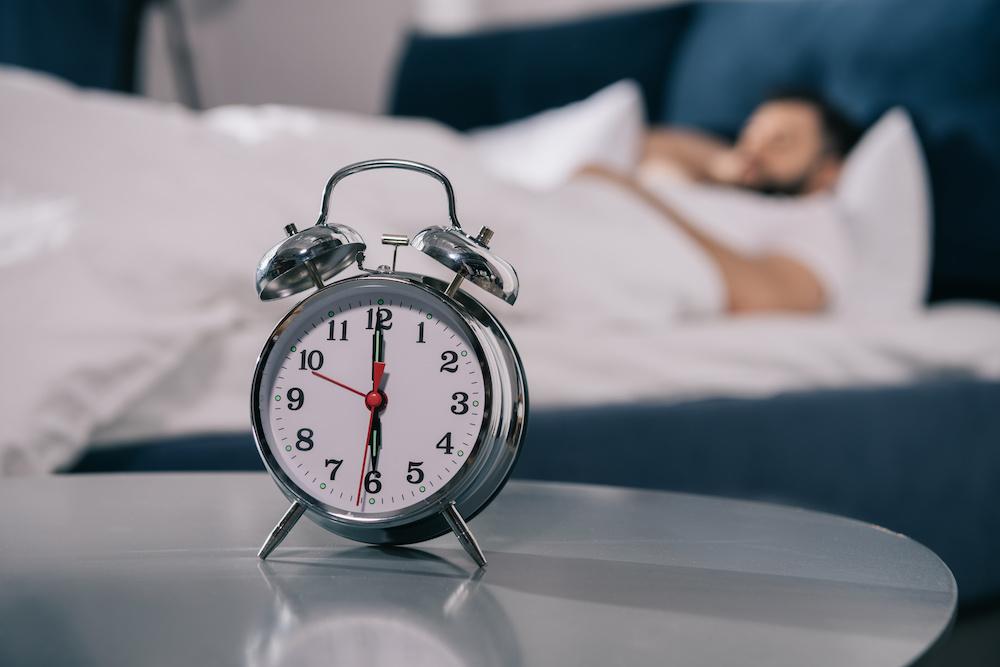How to Boost Your Productivity and Performance with Better Sleep Quality

The Impact of Sleep Quality on Productivity and Performance

Sleep quality plays a crucial role in our overall productivity and performance. It directly impacts our ability to concentrate, make decisions, and solve problems effectively. When we have a good night’s sleep, our brain functions optimally, allowing us to think clearly, process information efficiently, and retain knowledge effectively.
On the other hand, poor sleep quality can have detrimental effects on our cognitive abilities. Lack of sleep can lead to decreased alertness, decreased attention span, and impaired memory. It can also negatively affect our mood, leading to irritability and increased stress levels. Additionally, insufficient sleep can impact our physical health, weakening our immune system and making us more susceptible to illnesses.
To maximize productivity and performance, it is essential to prioritize sleep quality. This means ensuring that we get enough sleep, typically around 7-9 hours for adults, and that we establish a consistent sleep schedule. Creating a relaxing sleep environment and implementing a bedtime routine can also help promote better sleep. Moreover, managing stress and anxiety, avoiding stimulants and electronics before bed, and evaluating the sleep surface and pillows can contribute to improved sleep quality.
By taking steps to optimize our sleep, we can enhance our productivity and performance levels throughout the day. The next sections of this article will explore further strategies and techniques to help improve sleep quality and ultimately boost our overall effectiveness in various aspects of life.
Walker has spent more than 20 years studying sleep and its impact on mental health and disease. Walker joins “CBS This Morning” to discuss what happens to the body when its lacks sleep:
Understanding the Science Behind Sleep and Productivity
Sleep is a fundamental biological process that plays a crucial role in our overall well-being and functioning. It is a complex phenomenon that involves various physiological and neurological mechanisms. Understanding the science behind sleep and its impact on productivity can provide valuable insights into optimizing our performance in various areas of our lives.
During sleep, our bodies undergo a series of intricate processes that are essential for maintaining physical and mental health. These processes include the replenishment of energy stores, consolidation of memories, regulation of hormone levels, and repair of tissues. Research has shown that sleep deprivation can have detrimental effects on cognitive function, attention, memory, and decision-making abilities. Furthermore, chronic lack of sleep has been associated with an increased risk of developing chronic diseases such as cardiovascular disorders, obesity, and diabetes. Consequently, ensuring adequate and restful sleep is paramount for achieving optimal productivity and performance in all aspects of life.
Understanding the science behind sleep and productivity involves delving into the intricate mechanisms that govern our sleep-wake cycles. These cycles are regulated by a combination of internal biological processes known as circadian rhythms and external factors such as light exposure and environmental cues. The circadian rhythm is a 24-hour cycle that controls sleep and wakefulness, linked to the body’s production of melatonin, a hormone that induces sleep. Disruptions to this rhythm, such as irregular sleep schedules or exposure to artificial light at night, can disrupt our sleep patterns and impact our performance during the day. By recognizing these underlying mechanisms, we can make informed decisions and implement strategies to optimize our sleep quality and ultimately enhance productivity and performance.
Here’s information on the science behind sleep and productivity:
| Science Behind Sleep and Productivity | Key Concepts and Considerations | Credible Source |
|---|---|---|
| Sleep Architecture | – Key Concept: Sleep is composed of different stages, including REM and NREM, each with distinct functions. | National Sleep Foundation – Stages of Sleep |
| – Considerations: Quality and quantity of sleep impact cognitive functions, memory consolidation, and overall alertness. | ||
| Sleep Cycles and Circadian Rhythm | – Key Concept: Sleep cycles follow a circadian rhythm influenced by the body’s internal clock. | National Institute of General Medical Sciences – Circadian Rhythms |
| – Considerations: Consistent sleep and wake times help synchronize the circadian rhythm, optimizing alertness during waking hours. | ||
| Role of REM Sleep in Learning | – Key Concept: REM sleep is associated with memory consolidation and learning processes. | Harvard Health Publishing – How Memory and Thinking Ability Change With Age |
| – Considerations: Sufficient REM sleep supports cognitive functions, problem-solving, and creativity. | ||
| Impact on Decision-Making | – Key Concept: Sleep deprivation can impair judgment and decision-making abilities. | Sleep Medicine Reviews – The Neural Basis of Sleep and Sleep Disorders |
| – Considerations: Adequate sleep enhances cognitive flexibility and the ability to assess and respond to situations effectively. | ||
| Memory Consolidation | – Key Concept: Sleep plays a crucial role in consolidating and organizing memories. | Current Opinion in Behavioral Sciences – Sleep and Memory Consolidation: A Mechanism-Based Perspective |
| – Considerations: Deep sleep stages support the transfer of information from short-term to long-term memory. | ||
| Attention and Focus | – Key Concept: Sleep supports sustained attention, focus, and the ability to avoid distractions. | Nature Reviews Neuroscience – The role of sleep in regulating structural plasticity and synaptic strength: Implications for memory and cognitive function |
| – Considerations: Sleep-deprived individuals may experience lapses in attention and reduced cognitive performance. | ||
| Emotional Regulation | – Key Concept: Sleep influences emotional regulation and resilience to stress. | Sleep Medicine Reviews – Sleep, Emotion Regulation, and Emotional Disorders |
| – Considerations: Quality sleep contributes to emotional well-being and adaptive responses to stressors. | ||
| Tips for Improving Sleep for Productivity | – Key Concepts: Develop a consistent sleep schedule, create a sleep-conducive environment, and practice good sleep hygiene. | National Sleep Foundation – Healthy Sleep Tips |
| – Considerations: Prioritize sleep as a vital component of overall well-being and productivity. |
Identifying Signs of Poor Sleep Quality
Poor sleep quality can have a significant impact on our overall well-being and productivity. Identifying signs of poor sleep quality is crucial in order to address any underlying issues and improve our sleep habits. One of the key indicators of poor sleep quality is difficulty falling asleep or staying asleep throughout the night. This can manifest as frequent awakenings, tossing and turning, or lying awake for extended periods of time. Additionally, waking up feeling tired, groggy, or unrefreshed despite getting an adequate amount of sleep is another sign of poor sleep quality. It is important to pay attention to these signs and take steps to improve our sleep hygiene to ensure optimum productivity and performance.
Another sign of poor sleep quality is experiencing excessive daytime sleepiness or fatigue. This can make it challenging to stay alert and focused during the day, leading to decreased productivity and performance. Feeling irritable, moody, or having difficulty concentrating are also common signs of poor sleep quality. Additionally, poor sleep can negatively impact our physical health, leading to an increased risk of chronic conditions such as obesity, diabetes, and cardiovascular diseases. By recognizing these signs, we can take proactive measures to improve our sleep habits and promote better overall well-being.
Establishing a Consistent Sleep Schedule

A consistent sleep schedule is crucial for maintaining optimal productivity and performance. The body relies on a natural clock called the circadian rhythm to regulate sleep-wake cycles and other important bodily functions. When this rhythm is disrupted, it can lead to poor sleep quality and a decrease in overall productivity.
To establish a consistent sleep schedule, it is important to prioritize a regular bedtime and wake-up time. This means going to bed and waking up at the same time every day, including weekends. Consistency is key, as it helps to regulate the body’s internal clock and promotes better sleep quality. Additionally, avoiding napping during the day can help ensure that you are tired and ready for sleep at your designated bedtime.
Creating a nighttime routine can also be helpful in establishing a consistent sleep schedule. This can include activities such as reading a book, taking a warm bath, or practicing relaxation techniques like deep breathing or meditation. Engaging in these calming activities signals to the body that it is time to wind down and prepare for sleep.
By prioritizing a consistent sleep schedule and establishing a bedtime routine, you can improve sleep quality and enhance your productivity and performance throughout the day. It may take time for your body to adjust to the new schedule, but with patience and consistency, you can reap the many benefits of a good night’s sleep. Stay tuned for the next section of our article, where we explore ways to create a relaxing sleep environment.
Creating a Relaxing Sleep Environment

Creating a relaxing sleep environment is crucial for achieving quality sleep and promoting overall well-being. One way to create this environment is by optimizing the atmosphere in your bedroom. Ensure that the room is kept at a comfortable temperature, usually between 60-67°F (15-19°C), as this temperature range is conducive to sleep. Additionally, make sure the lighting in your bedroom is dim or, preferably, completely dark. Light exposure can disrupt the production of melatonin, a hormone that regulates sleep, therefore it is important to minimize exposure to artificial light from electronic devices and consider using blackout curtains or an eye mask to block out external light sources.
Another key aspect of a relaxing sleep environment is reducing noise levels. Investing in a white noise machine or using earplugs can help drown out disruptive sounds and create a more peaceful ambience. If you live in a noisy neighborhood or have difficulty sleeping due to external noise, soundproofing your bedroom may be a worthwhile consideration. By creating a quiet and calm atmosphere, you can greatly improve your chances of falling asleep and maintaining uninterrupted rest throughout the night.
Implementing a Bedtime Routine for Better Sleep
Establishing a consistent bedtime routine plays a crucial role in improving the quality of your sleep. A bedtime routine is essentially a series of activities that you engage in before going to bed, signaling to your body and mind that it is time to unwind and prepare for sleep. This routine helps to establish a regular sleep schedule and promotes the alignment of your body’s natural circadian rhythm.
A bedtime routine should ideally begin around an hour before your intended sleep time. Start by engaging in relaxing activities such as reading a book, practicing deep breathing exercises, or taking a warm bath. These activities help to reduce stress and promote a sense of calmness, making it easier for you to fall asleep. Avoid engaging in stimulating activities, such as watching television or using electronic devices, as the blue light emitted from these screens can disrupt your sleep cycle. Instead, opt for activities that promote relaxation and set the stage for a restful night’s sleep.
By implementing and sticking to a consistent bedtime routine, you are giving your body the opportunity to wind down and prepare for sleep. This routine not only helps you fall asleep faster but also improves the overall quality of your sleep, leading to increased productivity and performance during the day. So, take the time to establish a bedtime routine that suits your needs and preferences, and reap the benefits of a rejuvenating night’s sleep.
The Role of Exercise in Improving Sleep Quality

Engaging in regular exercise not only has numerous benefits for physical health, but it also plays a significant role in improving sleep quality. Research has shown that incorporating physical activity into our daily routine can lead to more restful and rejuvenating sleep. When we exercise, our body temperature rises, and this increase is followed by a cooling period during sleep, which promotes deeper sleep cycles. Moreover, exercise helps to reduce stress levels, anxiety, and symptoms of depression, all of which can negatively impact sleep quality. By engaging in aerobic activities, such as brisk walking, running, swimming, or cycling, we can stimulate the release of endorphins, natural mood-enhancing chemicals in the brain, which promote a sense of well-being and relaxation that can contribute to a better night’s sleep.
In addition to the positive mental and physical effects of exercise on sleep quality, regular physical activity has been shown to address certain underlying causes of insomnia. For example, exercise can help regulate our body’s natural circadian rhythm, or internal clock, by aligning it with external cues such as daylight and darkness. By ensuring that our circadian rhythm is in sync with our sleep schedule, we can optimize our body’s sleep-wake cycle, making it easier for us to fall asleep and wake up at the desired times. Furthermore, exercise has been found to enhance the production of adenosine, a compound that accumulates in our brain throughout the day, promoting feelings of sleepiness and aiding in sleep initiation. By increasing the production of adenosine, exercise can help us fall asleep faster and experience a more continuous and uninterrupted sleep throughout the night.
In conclusion, incorporating regular physical activity into our lifestyle not only offers a range of physical health benefits, but it also plays a crucial role in improving sleep quality. Engaging in aerobic exercises promotes the release of endorphins, reduces stress and anxiety, and helps regulate our circadian rhythm. Additionally, exercise enhances the production of adenosine, aiding in sleep initiation and promoting a more restful and rejuvenating sleep. By prioritizing exercise as part of our daily routine, we can not only enhance our physical well-being but also reap the rewards of improved sleep quality, leading to enhanced productivity and performance in our waking hours. So, why not lace up those sneakers and embark on a journey towards better sleep tonight?
Managing Stress and Anxiety for a Restful Night’s Sleep
Stress and anxiety can significantly impact the quality of our sleep, leaving us feeling restless and fatigued the next day. Managing these psychological factors is crucial in achieving a restful night’s sleep. Research has shown that chronic stress can lead to the release of cortisol, a hormone that disrupts our sleep patterns. Additionally, anxiety can cause our minds to race, making it difficult to relax and fall asleep.
One effective way to manage stress and anxiety is through relaxation techniques. Engaging in activities such as deep breathing exercises, meditation, and progressive muscle relaxation can help calm the mind and promote a sense of tranquility before bedtime. These techniques have been found to reduce cortisol levels and increase the production of serotonin, a neurotransmitter that plays a role in regulating sleep. Incorporating these practices into a nighttime routine can help alleviate stress and anxiety, leading to a more restful and rejuvenating sleep experience.
In addition to relaxation techniques, it is important to address the underlying causes of stress and anxiety. This may involve seeking professional help, such as therapy or counseling, to explore and manage emotional stressors. Identifying and addressing these issues can have a profound impact on sleep quality. Furthermore, adopting a healthy lifestyle that includes regular exercise, a balanced diet, and proper stress management techniques can contribute to overall well-being and improve sleep quality. By taking proactive steps to manage stress and anxiety, individuals can create a conducive environment for a restful and rejuvenating night’s sleep.
Avoiding Stimulants and Electronics Before Bed
Stimulants and electronics can significantly disrupt our sleep patterns if used too close to bedtime. Stimulants, such as caffeine and nicotine, have been shown to delay the timing of sleep and reduce total sleep time, leading to restless nights and groggy mornings. It is recommended to avoid consuming these substances at least four to six hours before bed to allow your body enough time to metabolize and eliminate them.
In addition to stimulants, the blue light emitted by electronic devices can interfere with our natural sleep-wake cycle. The blue light suppresses the production of melatonin, a hormone that regulates sleep, making it harder to fall asleep at night. It is advisable to limit the use of electronic devices, such as smartphones, tablets, and laptops, at least one to two hours before bed. Instead, engage in relaxing activities like reading a book, listening to calming music, or practicing relaxation techniques to prepare your body and mind for a restful night’s sleep.
By avoiding stimulants and limiting electronic device usage before bed, you can create a healthier sleep environment and improve the quality of your sleep. It is important to establish a consistent routine and stick to it, as our body’s internal clock thrives on predictability. In the next section, we will explore the benefits of a consistent sleep schedule and how it can positively impact your productivity and performance.
Evaluating Your Sleep Surface and Pillows
When it comes to evaluating your sleep surface and pillows, it is important to consider both comfort and support. A good sleep surface should provide adequate support to keep your spine aligned and relieve pressure points. Additionally, the mattress should be of the right firmness level for your individual needs. A mattress that is too firm can cause discomfort and restrict blood flow, while a mattress that is too soft may not provide enough support for proper spinal alignment.
Pillows also play a crucial role in ensuring a comfortable and restful sleep. The right pillow should provide proper neck support while keeping your head in alignment with your spine. It is important to choose a pillow that is suitable for your sleeping position. For example, back sleepers may benefit from a thinner pillow, while side sleepers may require a firmer and higher pillow to keep their head and neck properly supported.
In order to evaluate your sleep surface and pillows, it may be helpful to try out different options and see what works best for you. It is recommended to visit a reputable mattress store that offers a variety of mattresses with different firmness levels. Similarly, testing out different pillows and seeking guidance from a sleep specialist or chiropractor can help you find the right pillow that suits your specific needs. Remember, a comfortable and supportive sleep surface, along with an appropriate pillow, can greatly contribute to a good night’s rest and improve overall sleep quality.
Seeking Professional Help for Sleep Disorders
When it comes to seeking professional help for sleep disorders, it is important to understand the potential benefits and how it can improve your overall quality of life. A sleep disorder can have a significant impact on your productivity, performance, and overall well-being. By seeking professional help, you are taking a proactive approach to finding long-term solutions and management strategies.
A healthcare professional specializing in sleep medicine can evaluate your specific sleep concerns and provide a comprehensive assessment. They will take into account your medical history, lifestyle habits, and any underlying conditions that could be contributing to your sleep difficulties. Based on this assessment, they can recommend appropriate treatments, therapies, or interventions that will address the root causes of your sleep disorder. This may include lifestyle modifications, behavioral therapies, or the use of medications under their guidance and supervision.
Seeking professional help for sleep disorders is crucial as it allows for timely diagnosis and appropriate management. By working closely with a sleep specialist, you can gain a better understanding of your sleep patterns, learn effective coping mechanisms, and optimize your sleep environment. Remember, the path to better sleep begins with recognizing the need for professional assistance and taking proactive steps towards finding a sustainable solution.
Harnessing the Power of Power Naps
Power naps, also known as short daytime naps, have gained popularity as a way to boost productivity and combat fatigue. These brief periods of rest, typically lasting between 10 to 30 minutes, are believed to enhance alertness, improve cognitive function, and restore energy levels. The benefits of power napping extend beyond simply feeling more refreshed; studies have shown that incorporating regular power naps into your daily routine can have a significant positive impact on overall performance and productivity.
Research suggests that power naps can improve memory consolidation, learning ability, and creativity. When we sleep, our brains process and consolidate newly acquired information, making it easier to recall and utilize later. By taking a power nap during the day, we provide our brains with an opportunity to strengthen these connections, leading to improved memory retention. In addition, the restorative effects of power napping can help to mitigate the negative effects of sleep deprivation, enabling us to think more clearly, make better decisions, and work more efficiently.
While the exact duration and timing of power naps may vary depending on personal preference and individual needs, experts generally recommend keeping them short and avoiding late afternoon or evening naps, as this could interfere with nighttime sleep. Despite the benefits of power napping, it is important to note that they should not be used as a substitute for quality nighttime sleep. Developing and maintaining a regular sleep schedule, creating a relaxing sleep environment, and practicing good sleep hygiene are all crucial components of ensuring a restful night’s sleep. Harnessing the power of power naps, in conjunction with these healthy sleep practices, can unlock a valuable tool for enhancing productivity and performance.
Tracking and Monitoring Your Sleep to Improve Productivity and Performance
One of the most effective ways to improve productivity and performance is by tracking and monitoring your sleep. Sleep plays a crucial role in our overall well-being, and a lack of quality sleep can significantly impact our cognitive abilities, attention span, and decision-making skills. By tracking and monitoring our sleep patterns, we can gain valuable insights into our sleep quality and identify any potential issues that may be affecting our productivity.
There are several methods available for tracking and monitoring sleep. One popular option is using sleep tracking apps or devices that can provide detailed information about our sleep patterns, including the time it takes to fall asleep, the duration of each sleep stage, and the number of times we wake up during the night. These apps can also track other factors that may impact our sleep quality, such as room temperature, noise levels, and sleep environment. By analyzing this data, we can identify patterns and make necessary adjustments to improve our sleep quality and overall productivity.
It is important to note that while sleep tracking can be a helpful tool, it should not replace professional medical advice. If you are consistently experiencing poor sleep quality despite making necessary lifestyle changes, it is important to consult with a healthcare professional who can provide further guidance and potentially diagnose any underlying sleep disorders. Tracking and monitoring your sleep can be a valuable tool for improving productivity and performance, but it is always best to seek professional help when needed.
How does sleep quality affect productivity and performance?
Sleep quality directly impacts productivity and performance. Poor sleep can lead to decreased cognitive functioning, reduced concentration, and impaired decision-making abilities.
What is the science behind sleep and productivity?
During sleep, the brain consolidates and processes information, which enhances memory and learning. It also restores energy, repairs tissues, and regulates hormones, all of which contribute to improved productivity and performance when well-rested.
How can I identify signs of poor sleep quality?
Signs of poor sleep quality include difficulty falling asleep or staying asleep, frequent waking during the night, excessive daytime sleepiness, morning headaches, and mood disturbances.
How can I establish a consistent sleep schedule?
To establish a consistent sleep schedule, set a regular bedtime and wake-up time, even on weekends. This helps regulate your body’s internal clock and promotes better sleep quality.
What can I do to create a relaxing sleep environment?
Create a relaxing sleep environment by keeping your bedroom dark, quiet, and at a comfortable temperature. Remove electronics, clutter, and distractions that may disrupt sleep.
How can implementing a bedtime routine improve sleep quality?
A bedtime routine signals to your body that it’s time to wind down and prepare for sleep. Engaging in relaxing activities, such as reading a book or taking a warm bath, can help promote better sleep quality.
What role does exercise play in improving sleep quality?
Regular exercise can improve sleep quality by reducing stress and anxiety, promoting relaxation, and regulating sleep-wake cycles. However, avoid exercising close to bedtime as it may energize your body and hinder sleep.
How can I manage stress and anxiety for a restful night’s sleep?
Managing stress and anxiety can be achieved through relaxation techniques like deep breathing, meditation, or journaling. Creating a pre-sleep routine that includes these activities can help calm the mind for better sleep.
Should I avoid stimulants and electronics before bed?
Yes, it is advisable to avoid stimulants like caffeine and nicotine, as well as electronic devices such as smartphones and tablets, before bed. These can interfere with the ability to fall asleep and disrupt sleep quality.
How can I evaluate my sleep surface and pillows for better sleep?
Choose a comfortable mattress and pillow that adequately support your body. If you frequently wake up with discomfort or pain, it may be time to consider replacing your sleep surface or pillows.
When should I seek professional help for sleep disorders?
If you consistently struggle with poor sleep quality or suspect you have a sleep disorder, it is recommended to seek professional help. A sleep specialist can evaluate your symptoms, diagnose any underlying conditions, and provide appropriate treatment.
How can power naps be harnessed for improved productivity and performance?
Power naps, short daytime naps lasting around 10-20 minutes, can restore alertness, boost cognitive function, and improve productivity. However, longer naps or napping too close to bedtime may interfere with nighttime sleep.
How can tracking and monitoring my sleep improve productivity and performance?
Tracking and monitoring your sleep using wearable devices or sleep-tracking apps can provide insights into your sleep patterns and help identify areas for improvement. By understanding your sleep habits, you can make informed changes to optimize your productivity and performance.





